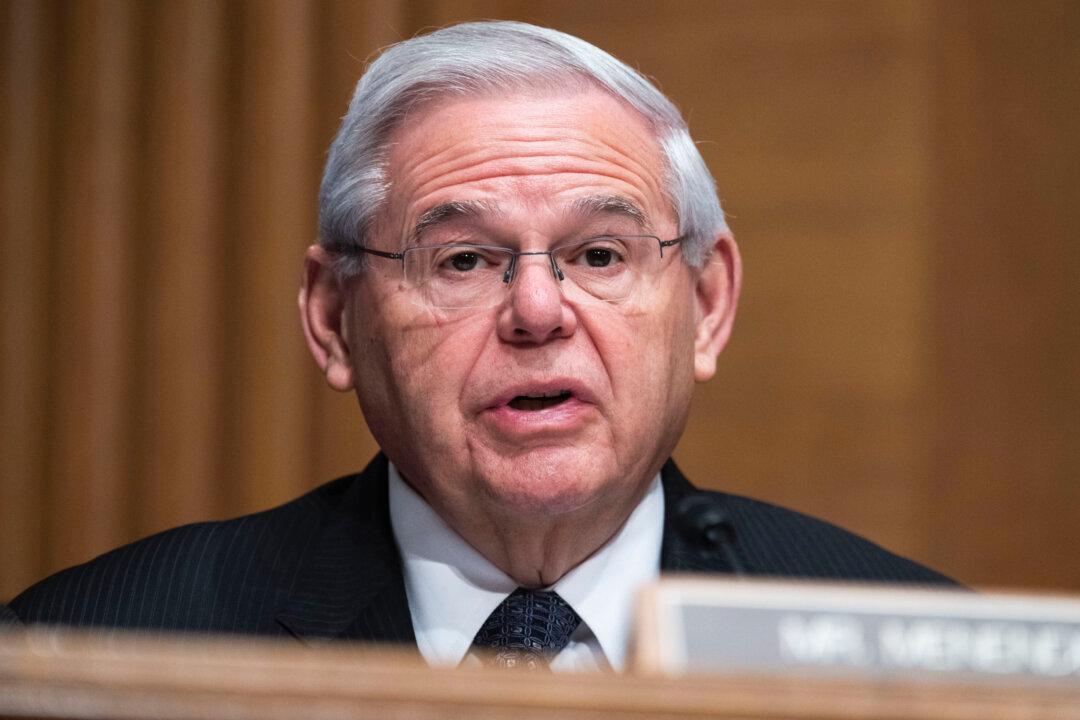A federal judge on Thursday denied Sen. Bob Menendez’s (D-N.J.) motion to dismiss four conspiracy charges in his bribery case on grounds of legislative immunity.
Mr. Menendez had requested for the dismissal of charges relating to his recommendation to the president of a candidate for U.S. attorney of New Jersey, as well as his meetings and actions concerning foreign aid to Egypt, including his alleged disclosure of sensitive non-public information to Egyptian officials.





